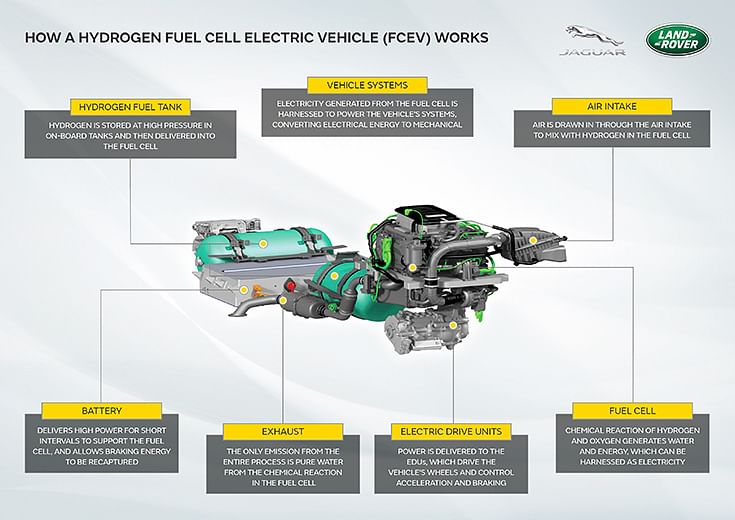Land Rover to begin hydrogen Defender trials later this year
Defender will be FCEV test bed as part of JLR’s Project Zeus.
Jaguar Land Rover will start testing its new fuel cell powertrain technology with a hydrogen-powered Defender prototype later this year.
The company’s Project Zeus programme forms part of JLR’s plan to achieve zero tailpipe emissions by 2036 and is a core part of the Reimagine strategy unveiled by CEO Thierry Bolloré earlier this year.

Fuel cell electric vehicles (FCEVs) will be “complementary to battery- electric vehicles” in the company’s new-era product line-up. Key benefits over battery-electric vehicles, as outlined by Jaguar Land Rover, include rapid refuelling and optimal range in low temperatures.
Project Zeus will use an adapted FCEV Defender to test these attributes in a real-world setting, as well as other characteristics, such as off-road ability. Part-funded by the government-backed Advanced Propulsion Centre, Project Zeus is being run in partnership with engineering firms such as Delta Motorsport, AVL and Marelli Automotive Systems.
JLR says forecasts predict 10,000 hydrogen refuelling stations could be in operation by 2030 to serve a fleet of 10 million FCEVs.
RELATED ARTICLES
Autoliv Plans JV for Advanced Safety Electronics With China’s HSAE
The new joint venture, which is to be located strategically near Shanghai and close to several existing Autoliv sites in...
JLR to Restart Production Over a Month After September Hacking
Manufacturing operations at the Tata Group-owned British luxury car and SUV manufacturer were shut down following a cybe...
BYD UK Sales Jump 880% in September to 11,271 units
Sales record sets the UK apart as the largest international market for BYD outside of China for the first time. The Seal...






 15 Jun 2021
15 Jun 2021
 3587 Views
3587 Views








 Ajit Dalvi
Ajit Dalvi




